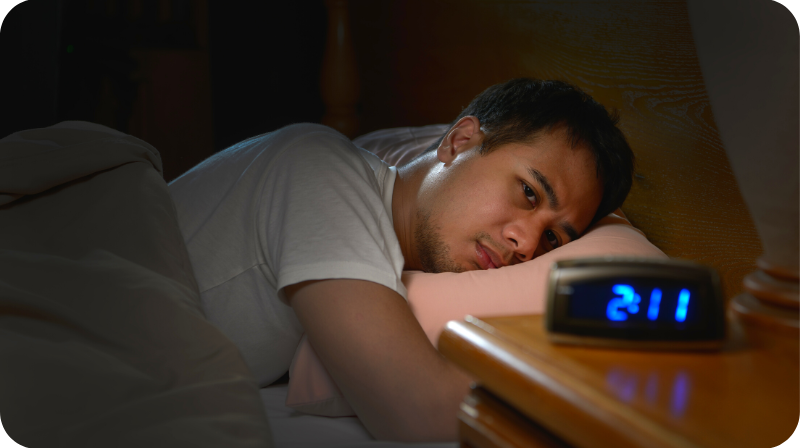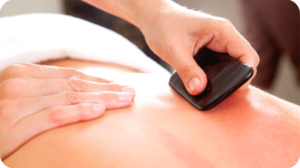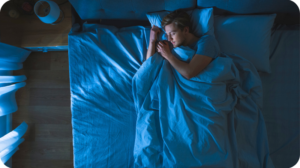Sleep disruption is often life disrupting. Any disturbance to a good night’s sleep affects both mental and physical well-being. New research reveals just how seriously chronic sleep disruption in the form of insomnia can be, and the potentially deadly impact it can have on cardiovascular health.

The review of existing data—called a meta-analysis—was conducted by researchers in Egypt. It found that sleepers who experienced less than five hours of sleep a night had a significantly higher risk of heart attack. In fact, compared to sleepers who got a night of seven to eight hours of solid sleep, problem sleepers were 56 percent likelier to suffer a heart attack. The risk was even higher among women. It’s important to note that heart disease remains the number one cause of death among women in the United States.
If you are one of the many people who accepts insomnia as just a fact of life, the study is good reason to take action to resolve your sleeping difficulties.
Improving Sleep, Reducing Insomnia
Sleep is an amazingly complex process not completely understood even by medical professionals. That’s why insomnia can seem so intractable. Even with the vast array of sleep aids available (many of which simply ensure unconsciousness, not quality restorative sleep) many insomnia suffers tolerate their condition for years and even decades. However, most cases of insomnia can be remedied to one degree or another. Taking the steps below—listed from the simplest to the most complex—will help you find your way to seven or eight hours of true sleep each night. That, in turn, will reduce your risk of a life-threatening heart attack.
- Establish a sleep routine. Signal to your body and mind when it’s time to sleep by sticking to a strict bedtime. Try to be in bed with the lights out within 10 minutes of the same time each night, and wake up within 10 minutes of the same time each morning (including weekends). Sleep timing is one of the best and simplest ways to train your body and mind for proper slumber.
- Set the stage. The basic elements of good “sleep hygiene” involve your bedroom environment. Do not keep a TV in the bedroom; the blue light can radically disrupt healthy sleep patterns. Keep the bedtime temperature between 61°F and 65°F for best results. Use a white or pink noise machine to mask any annoying sounds, if you can’t keep your bedroom as close to silent as possible. Use blackout shades if there are external sources of strong light, and make sure your bed linens are as close to luxurious as you can afford, and that your mattress and pillows are not past their prime.
- Consume to snooze. If you are having sleep difficulties, avoid alcohol, refined sugar, and caffeine in any beverage or food, for at least four hours before bedtime. It’s wise to eat your least meal at least several hours before bed; most people enjoy better sleep if they go to bed at least slightly hungry. If you must have a snack after dinner, eat a small amount of complex carbohydrates, such as nuts. Don’t drink a full glass of water close to your bedtime, to avoid disrupting your sleep with the need to urinate.
- Use only natural sleep aids. It’s best to avoid sleep aids altogether to allow your body and mind to get into a healthy sleep pattern on their own. But if you absolutely must use a sleep aid occasionally, opt for natural and gentle solutions. Try CBD gummies or capsules, melatonin supplements, or magnesium tablets.
- Sleep study and treatment. If you have an underlying condition such as sleep apnea, you may not even realize it because it occurs while you’re asleep. If your sleep disruption is chronic and you barely get four or five hours of sleep in a night, consult your primary caregiver for referral to a sleep study center or a home sleep study service. Some sleep-disrupting conditions can only be diagnosed and remedied by evaluating your sleep quality while you’re attempting to sleep. If you do, in fact, have a condition, your doctor may prescribe a mechanical remedy such as a CPAP machine, or supplemental oxygen.
Everyone experiences sleep difficulties at one time or another. Insomnia is defined as disrupted, low-quality sleep for more than two nights in a row or three nights each week, Any ongoing incidence of insomnia should lead you to consult your doctor or a sleep specialist. Learn more about healthy sleep and the damage caused by sleep disruption and insomnia on the Sleep Foundation’s website.





